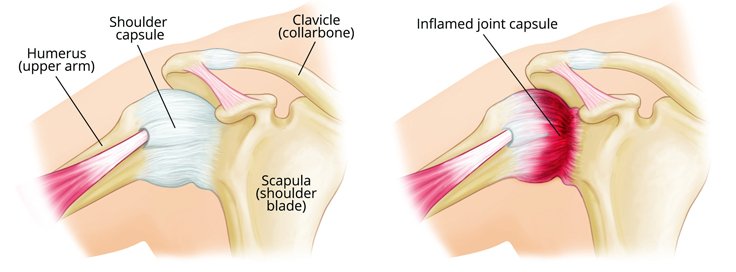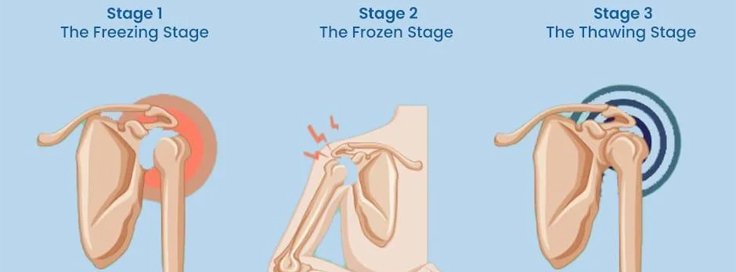Kims Hospitals, Beside Vijaya Sales, Madinaguda
+91-7799111005
Frozen shoulder, also known as adhesive capsulitis, is a condition that causes stiffness, pain, and limited movement in the shoulder joint. It develops gradually and can take months or even years to fully resolve. The condition occurs when the shoulder capsule thickens and tightens, restricting motion
.

1. Freezing stage: Increasing pain and stiffness.
2. Frozen stage: Severe movement restriction but pain may decrease.
3. Thawing stage: Gradual improvement in flexibility and function.
A doctor may perform a physical examination and imaging tests like X-rays or MRI to rule out other shoulder conditionssuch as arthritis or rotator cuff injuries.
Frozen shoulder treatment requires patience, but with proper care, most individuals recover fully. If you experience persistent shoulder joint pain, consult a healthcare professional for early intervention.
Madinaguda
Kims Hospitals,
Mon - Sat: 9 am - 9 pm,
Sunday: 10am - 2pm.
© All rights reserved by ARUN ORTHO CARE - Designed By Venlas Group.